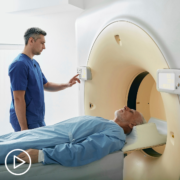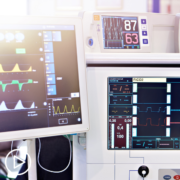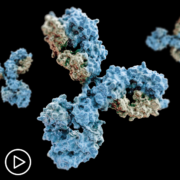What Follicular Lymphoma Treatment Side Effects Should Patients Expect?
What Follicular Lymphoma Treatment Side Effects Should Patients Expect? from Patient Empowerment Network on Vimeo.
Follicular lymphoma patients might experience different side effects, so what should patients expect? Expert Dr. Kami Maddocks from The Ohio State University Comprehensive Cancer Center discusses various treatments and common side effects that patients experience.
See More from START HERE Follicular Lymphoma
Related Resources:

What’s New for Follicular Lymphoma Treatment News and Developments? |

|

|
Transcript:
Lisa Hatfield:
So when you do have patients going through therapy, what are the typical side effects? And how do you help them manage those side effects of treatment?
Dr. Kami Maddocks:
Yeah, that’s a great question, and it’s very dependent, because we have so many different treatments now. It’s very dependent on the treatments that the patient’s getting. So things like single-agent antibody therapy with single-agent rituximab (Rituxan), most of the time, the biggest risk of that is the first time a patient can get it, they can have an infusion reaction. That’s managed as it’s happening. And then they tolerate that, in general, fairly well. That does wipe out the lymphocytes, as most of the treatments do, and puts patients at increased risk of infections, particularly viral infections for a period of time.
Chemotherapy, the most common chemo that we give for follicular lymphoma, I would say nausea, fatigue, and an increased risk of infection are kind of the bigger things. Bendamustine (Treanda) is a commonly used chemotherapy for follicular lymphoma, and that’s some of the big side effects from that.
Lenalidomide (Revlimid), the oral pill, so cytopenias infection, GI toxicity and rash are potentially the more common side effects of that. Less common, but we’re always concerned about blood clots, so most patients will take either an aspirin or a blood thinner, depending on their clot history when they’re on lenalidomide. The bispecific antibodies have a particular risk called cytokine release syndrome, so that immune systems activated, but it can almost get overactivated.
The most common symptom of that is fever, and so patients are counseled very closely on that. But activation of the immune system with that fever can also include changes in blood pressure or the need for some oxygen. Some of the CAR T-cell therapy has the same risk of the cytokine release, also has potential neuro side effects. And then longer term is just how long the patients’ immune systems take to recover. There can be risk for infections.
Share Your Feedback:
Create your own user feedback survey






